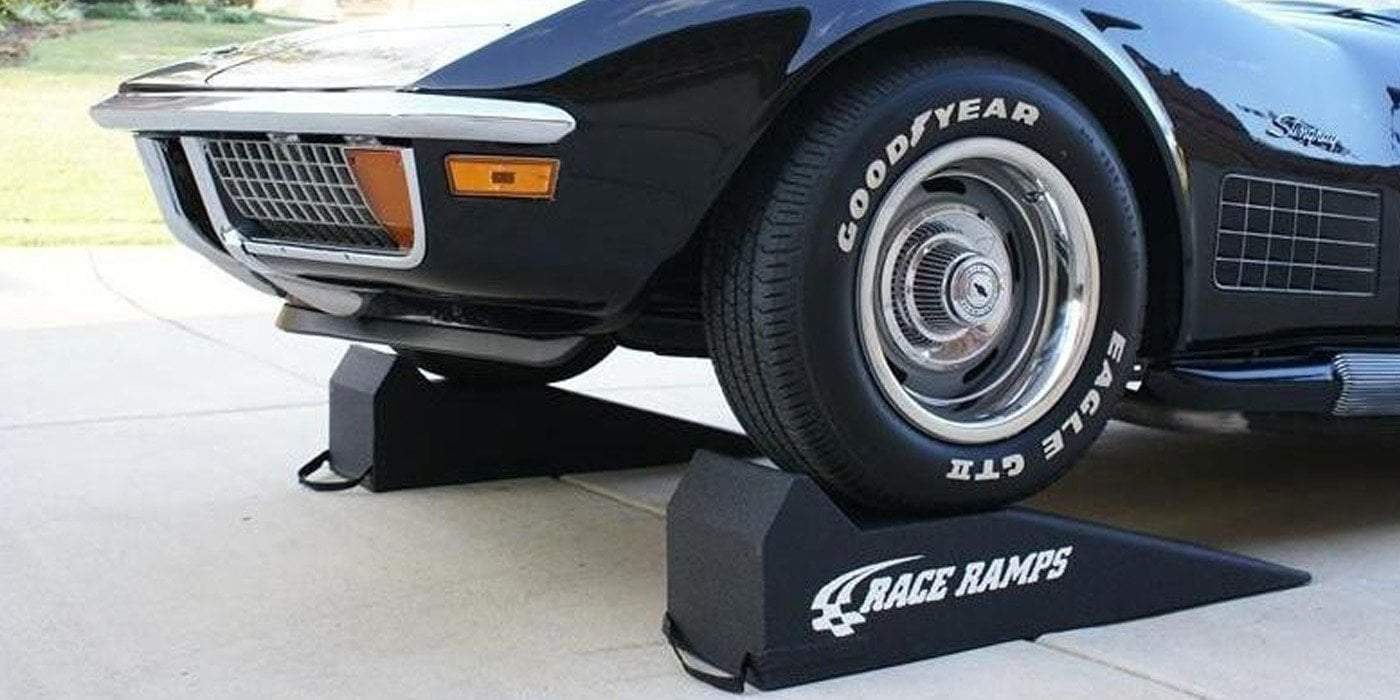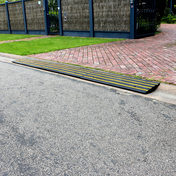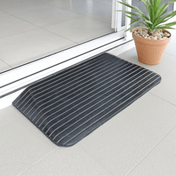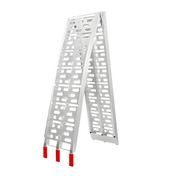Car ramps, also known as floor ramps, trailer ramps or auto ramps, are ramps that you can drive your car onto to elevate the front or rear wheels. They’re often made of high-strength plastic, aluminium, or metal.
At first glance, you may think they can be easily fabricated but take note, DIY ramps is a high-risk idea. Car ramps are extensively tested to verify load capacity over a large number of loading cycles to make sure that they are safe before being sold. So, a DIY ramp or a makeshift version is a guaranteed way to hurt yourself.
Car ramps are used when you want to raise the front or rear part of your car. Usually, these ramps are used for servicing your car at home or for display during car shows.
The greatest advantage of using car ramps is its convenience factor. It takes considerably less time to drive your car up on a set of ramps and chock your wheels than using jack stands.
How to Get the Best Car Service Ramps?
Before deciding on buying car service ramps, there are a few things to take into consideration to ensure you’ll get the best ramp on your first purchase.
1. Maximum rated load. It’s important to know the load capacity of the ramps. The larger the loading rate, the safer you’ll be.
Maximum rated load refers to the maximum Gross Vehicle Weight (GVW) that can be driven onto the ramp. You can find the GVW on your driver's door sticker or owner's manual. The ramp's load rating should be well above your car's GVW, to allow for a margin of errors.
This rating usually assumes you are using two ramps. For example, a pair of ramps with 2-tonne rating can hold the front half of a 4-tonne vehicle when using both ramps together.
2. Country of manufacture. It’s also an advantage to know which countries the ramps were produced. Ramps made in the United States, Australia and the European Union went under stricter quality control and are known all over the world as manufacturers of high standard ramps and uses high strength aluminium alloys to offer products that are both safe and guaranteed.
3. Read reviews. Reviews matter. It’s best if you can find good reviews of specific ramps you’re looking before purchasing. Some car owners tell horror stories of ramps collapsing even after first use so it’s good to hear actual stories and get opinions from other users to evaluate your options.
4. Check your car’s clearance. If you are aware of your car’s ground clearance requirement, it’s easier to decide whether you need regular ramps or ramp extensions. Ramp extensions are often used by sports cars or lowered vehicles to mount the ramps without scrapping the undercarriage. However, some of these extensions tend to be expensive so make sure you only buy specialized ramps if you're sure a regular ramp won't do.
5. Check for rubber stops. You don’t want your ramps to slide ahead of you right? Make sure that you’re getting ramps with rubber component undersides. This rubber will make the ramp less likely to slide when the car starts to drive up them especially if you’re working on a smooth surface like a polished workshop floor.
6. Look for signs of damage. Carefully check each ramp. Any obvious signs of rust, cracks, or other damages is a big no-no.
You’re finally ready to go! Keeping these things handy will guide you on getting the best deal on your first car ramp purchase. Don’t hesitate to ask questions. The more questions you ask, the more potential problems can be addressed immediately.
You can also direct your questions to us! Just call us to get your free quote and friendly assistance from our ramp experts.
Shop Car & Truck Service Ramps





